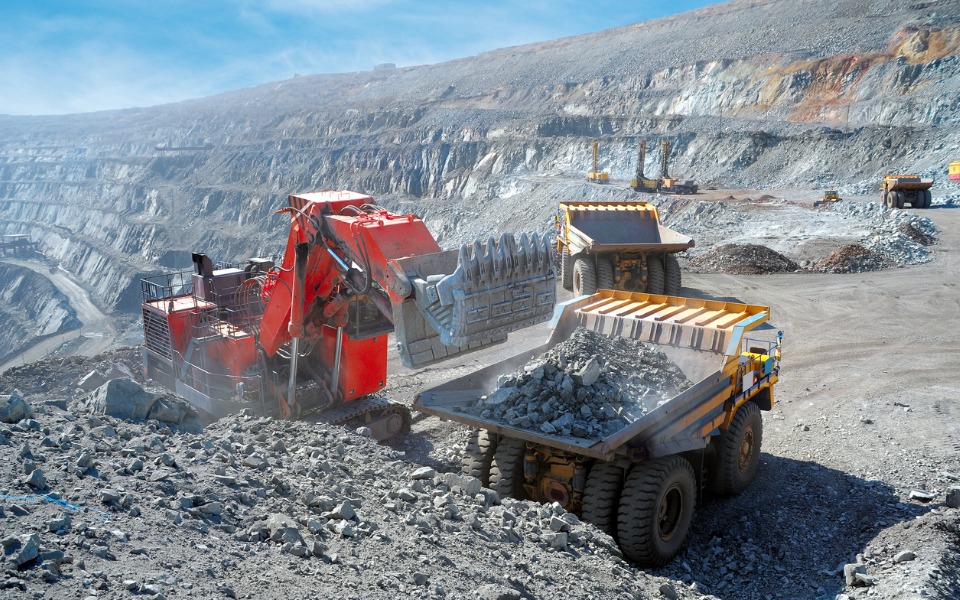
BSY govt eyes iron ore seized in mining scam for auction, spend funds for COVID
The B S Yediyurappa-led BJP government in Karnataka is gearing up to revive the mining sector, which has been engaged in a legal battle for years now.

The B S Yediyurappa-led BJP government in Karnataka is gearing up to revive the mining sector, which has been engaged in a legal battle for years now.
The cash-strapped government is considering auctioning the 6-8 million tonnes of iron ore seized from illegal mines when the mining scam came to light in Karnataka in 2011. The BJP government plans to use the funds generated throught the auction for COVID-related expenses.
However, experts say the plan could bring in even more legal issues on top of the existing ones.
The iron ore was seized from illegal mines in Ballari, Chitradurga, and Tumakuru districts after the mining scam was exposed during Yediyurappa’s previous regime. The investigation which followed led to his arrest and the downfall of the saffron party in the state.
At the current price of ₹2,000 per tonne of iron ore in the domestic market, the piled-up stock could generate anywhere between ₹1,200 – ₹1,600 crore in total as revenue.
However, the government is yet to attain legal clarity on whether the seized iron-ore belongs entirely to the government.
In a review meeting with the Mines and Geology Department last month, Yediyurappa directed the department officials to initiate the auctioning process. However, since the issue remained pending in the Supreme Court, the department now awaits clarification on the matter.
Mines and Geology Minister C C Patil told The Federal that contrary to the 8 million tonnes stock as claimed by the CM, there were only about 6 million tonnes in hand.
“The mining companies have approached the Supreme Court to export them. We expect the SC to deliver a verdict in July. The state can only get the royalty and cess from the sale proceeds and not the complete money,” Patil said.
According to the apex court’s guidelines, the royalty and cess from mining operations should be moved to a special purpose vehicle (SPV) and in turn, be used for reclamation and rehabilitation in the mining districts.
Apart from this, the government has unutilised funds of ₹1,928 crore from the District Mineral Foundations (DMF), a non-profit trust set up for the restoration of areas affected by mining activities.
As per DMF rules, every holder of a mining lease or a prospecting licence-cum-mining lease shall pay 10% or 30% of the royalty fee (depending on the category of the mines), to the respective DMF. This is in addition to the royalty fee.
Patil cited a central government directive and said the government plans to use these funds for COVID-related expenses.
However, S R Hiremath from the Samaja Parivartana Samudaya (SPS), the NGO which brought the mining scam to light, said it would certainly be illegal for the government to use the funds for COVID purposes.
Prashant Bhushan, noted activist and Supreme Court lawyer is fighting the case on behalf of Hiremath in the Supreme Court. “They certainly will have to get the SC nod before making any such move. SPS will pursue the same in the Supreme Court through our PIL,” Hiremath said.
Quoting his lawyers, Hiremath said, “From the reading of the judgement, it can be said that the illegally mined iron ore should be sold through e-auction under supervision of the Monitoring Committee. The sale proceeds should go to the SPV, and are only to be utilised for the specific purposes as mentioned by the SC.”
Meanwhile, Gogga Gursiddaiah, a registered mining operator in Ballari said as the iron ore stock has been piling up for more than seven or eight years, the quality might have deteriorated. He says bigger players like JSW Steel, which bought the stock in bulk in the last two auctions, might seek the ore at prices lesser than the market price. This, he says, will result in a loss to the state exchequer.
Since buyers are currently sourcing iron ore from states like Chhattisgarh, Karnataka is losing its edge.
Mining activists in Ballari worry that the state’s plan to rekindle the mining issue is an attempt to push for lifting of the mining ban. “First they will create an artificial demand-supply constraint saying there are no buyers. Then they will seek the court to export this ore instead of keeping them idle. Later, they will make the mining companies legally challenge the iron export ban and get their way to destroy the environment again,” the activist asserted.


